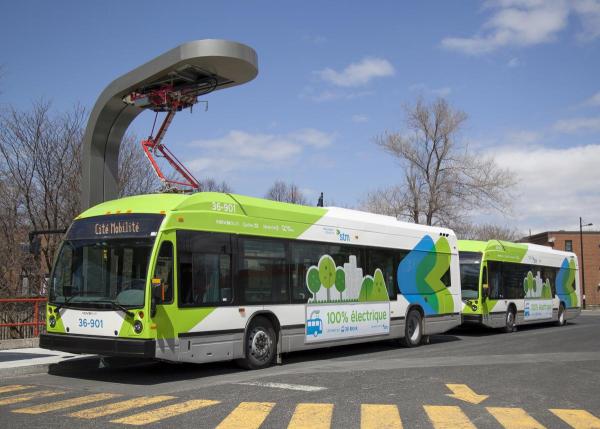In a symbolic move, London city councillors have voted to endorse in principle an electric bus rapid transit system.

The motion passed 9 to 5 at the Strategic Priorities and Policy Committee meeting on Monday and will head to full council for an official vote to endorse the plan in principle.
Josipa Petrunic, executive director and chief executive officer of the Canadian Urban Transit Research and Innovation Consortium, gave a presentation to the committee outlining the benefits and noting that if London moves forward, this would be a world first.
“From a manufacturing standpoint and from a transit standpoint it really puts London on the map as the first location in the world to demonstrate inter-operability of high-powered charging systems.”
Petrunic also outlined the economic benefits of choosing an electric system over diesel-powered buses.
“On Route 7, it’s electrifying on route throughout the day. You’re going to have the savings there of about $333,000 to $555,000 to electrify that route,” she explained.
“When you add in operational and maintenance costs together, the savings do increase. In this particular modelling, we’ve shown you simply the energy consumption savings of fuel, so diesel to electric.”
Speaking Tuesday on The Craig Needles Show on Global News Radio 980 CFPL, councillor and mayoral contender Tanya Park noted the move would also give London the opportunity to create a circular economy.
“The City of London, the people of London for that matter, own London Hydro. So when we’re buying electricity from London Hydro, we then get a dividend at the end of the day from London Hydro. Those dollars stay right here in our economy.”
Councillors Jared Zaifman and Phil Squire were among the five to vote against the motion.
“We’ve done a number of times where we have, I guess, essentially endorsed something,” Zaifman said on the Craig Needles Show.
“For me, I’m getting a little tired of endorsing things and I’d rather just make the decision when we have the opportunity to make the decision.”
Squire, meantime, wanted to gather more information before making any decisions.
“We had one presentation on the feasibility of having electric buses,” Squire said.
“So we’ve had one opinion that we can do this project and that it’s feasible. I said, basically, well we’ve got to get more information, we need other opinions, we need to find out if this one person who provided this opinion is actually right.”
Park noted that council voted unanimously two years ago to choose electric buses as the preference for the business case.
“In the costs associated with the business case that we’ve submitted to both the federal and provincial government, it talks about the use of electric buses. So those costs are already baked into the business case. The presentation we received last night really solidified the reason why it’s really important for London to go this way.”
London’s rapid transit plan has become a key municipal election issue with mayoral candidates Paul Cheng, Paul Paolatto, and Ed Holder saying they either want to scrap the plan or alter it significantly, while Park supports the current plan.
The BRT plan is currently in the environmental assessment period, which is expected to last until at least Oct. 25. The municipal election is slated for Oct. 22.








Comments